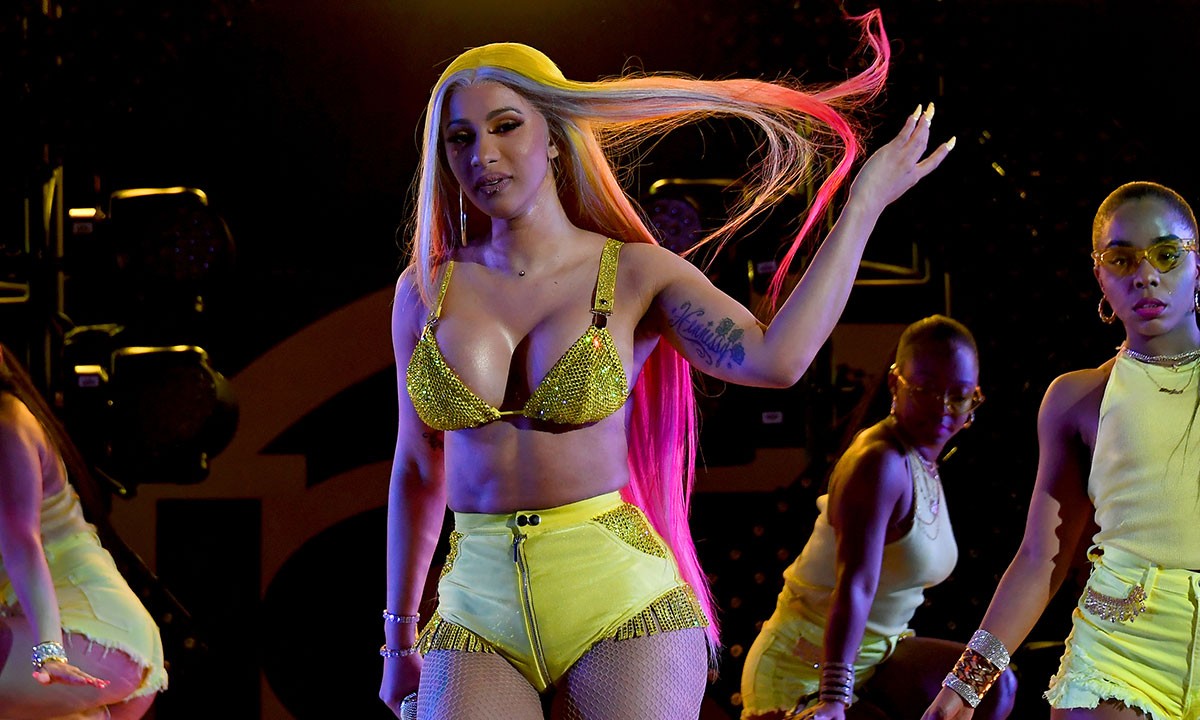In a recent cover story for Elle, Cardi B had a pointed message for her male counterparts: male rappers need to do more for Black women. In a similar vein, talking to the Breakfast Club, City Girls called out the apparent rivalry between the sexes in hip-hop. Collectively, the artists are making an important point about an age-old problem in the rap game — that female rappers still don’t have equal standing in a genre they helped create.
Cardi’s criticisms were aimed at the hip-hop community’s handling of Breonna Taylor‘s murder. The “WAP” rapper was one of the many celebrities using their platforms to inform the public and demand justice for the Black woman killed by police. More than 150 days after Taylor’s murder, with still no arrests made, Cardi B is putting pressure on male rappers to bring that same energy.
“A woman like Breonna Taylor, she was young,” she told Elle. “She looked like she was listening to your music. She looked like she was your fan. You should stick up for her.”
However, this is about more than just what has happened in the past months. Rap is still very much a male-dominated space, and many men in the industry are unwilling to give up those privileges, while their female contemporaries are encouraged to tear their rivals down. This “only one” theory came to a head in 2018, when after months of media instigation and speculation, Cardi B and Nicki Minaj’s rivalry manifested itself in a physical scuffle.
Speaking about the feud with Complex, Cardi acknowledged that she was just a pawn in the game pitting women against each other. “I feel like people wouldn’t even be satisfied if me and [Nicki] was making out on a freaking photo. I feel like people just want that drama because it’s entertaining.”
Despite the lack of support, rappers like Cardi B, Little Simz, Flohio, Nicki Minaj, Rico Nasty, and Leikeli47 are changing an industry and a genre that has kept women at bay, seemingly never spacious enough for more than one woman at a time. Where once the landscape was filled with sneak disses and feuds, women are changing the narrative by supporting rather than competing with one another.
With recent history-making chart toppers, female rappers are painstakingly claiming their rightful place in the genre, shoulder-to-shoulder with the boys. But according to rap duo City Girls, the industry hasn’t been very welcoming of this shift.
“Men is just threatened by the women dominating right now, because they are used to being in control of putting women on records, and now women are starting to team up and do it without them,” JT said during an interview. “Now they got so much to say, because back then you had to get on a hot song with a man to go No. 1 or even chart, but now women are doing it themselves.”
JT’s comments were in response to the backlash Cardi and Megan Thee Stallion got for their recent single, “WAP.” Short for “Wet Ass Pussy,” the resulting fallout once again illustrated the unfair standards women in rap are held to, where they are expected to pander to the male gaze while also being discredited for displaying their own sexuality.
In 2017, rapper and record executive Rick Ross notoriously stated that he wouldn’t sign a woman to his label, reasoning: “I always thought I would end up fucking a female rapper” — which spoke volumes about an industry that regarded women as objects instead of rappers with merit.
Hip-hop, and the mainstream infrastructure more broadly, are only reflecting our larger cultural failings. Accountability and reform haven’t quite caught up to rap. Like Cardi pointed out, support for Black women in particular remains a perpetual blindspot — and one that especially stings in this moment, as known abusers continue to be rewarded with praise and platforms.
For female rappers, the mission is simple: keep embracing sisterhood and shaking off the prejudices of the past. For listeners, trying to dismantle this means having to proactively seek out female rap to play. “Female” is not a genre, Cardi and City Girls’ male peers should be supporting, providing space and enthusiasm for the women running the game with them.
To the men: listen.

